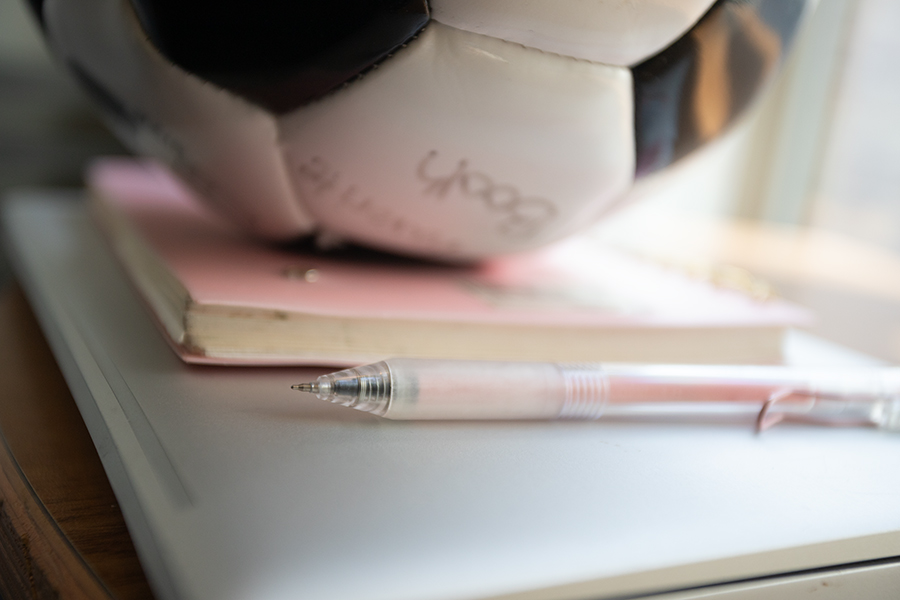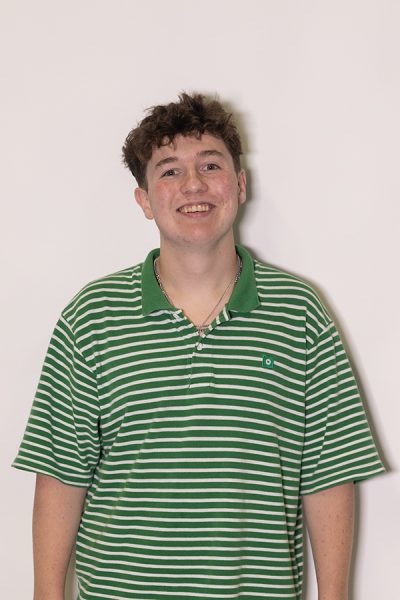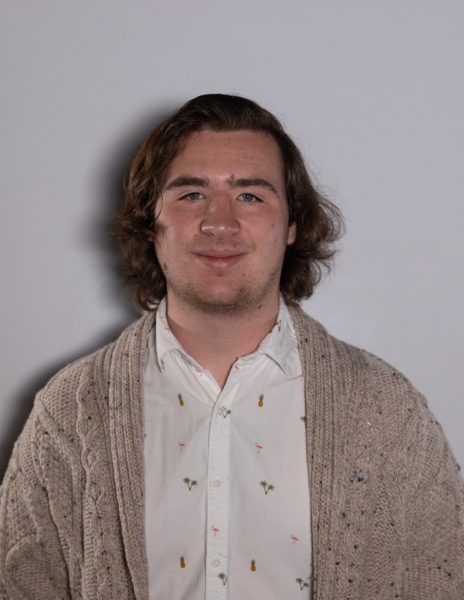The faculty athletic mentor program has been active at Ithaca College for nine years and has quickly developed into a mainstay in the school’s relationship between athletics and academics.
The faculty athletic mentor program pairs professors at the school with certain athletic teams to be an academic help resource and a team leader. It was introduced in 2015 with the hopes of having a faculty member cover every one of the college’s varsity athletic teams. With an initial seven mentors in 2015, the program has grown to cover 21 of 24 athletic programs since then.
At the Division III level, academics are the number one focus for most student-athletes. In navigating the balance between both academics and athletics, Ithaca College students each have had their own struggles and successes. The faculty athletic mentor program has aimed to aid in that pursuit.
Athletic scholarships are non-existent in Division III, forcing those who want to pursue sports to play with full love of their chosen sport. Anna Cornell, a junior pitcher on the softball team, said her decision to come to the college took into account athletics, but was mostly grounded in academic potential.
“Definitely a mix of both,” Cornell said. “I didn’t have a true recruiting process to come here, it was more checking it out and walking around the campus during the COVID year. Reached out to the coaches type of thing, but Ithaca is known for its physical therapy program and although when I applied, I applied exercise science, I kind of knew the next step was for me to get into that Department of Physical Therapy in that six-year program.”
Margaret Shackell, the college’s NCAA faculty athletics representative, took over the program in 2023 and said that nearly every team now has access to a faculty athletic mentor and that the goal of the program is to make sure student–athletes know someone is there for them on the academic side of things.
“Every team has a faculty athletic mentor and one of the things that we’re trying to do is encourage those mentors to meet with the students,” Shackell said. “I know that the professor who does women’s rowing meets with them regularly. It’s kind of different, just making sure that they know that there is someone from academics in their corner and hopefully every student knows that. But just making sure that we continue to emphasize how important academics is the reason that we’re all here and the other things are just fun additions.”
Tim Reynolds, assistant professor in the Department of Exercise Science and Athletic Training, serves as the faculty athletic mentor for three teams: baseball, wrestling and women’s track and field. Reynolds said that throughout all three sports, the students understand that they come to the college with their main focus being academics rather than athletics.
“I would say globally in any of the sports that I’m involved with, the students do understand that their priority here is academics, and I think that coaching staff also really supports that as well, whether it’s setting up study hours or mandatory office hours,” Reynolds said. “All that stuff gets spoken to the students very well.”
Tatiana Patrone, associate professor in the Department of Philosophy and Religion, said she has been the faculty athletic mentor for the women’s rowing team for around 10 years. Patrone said it is helpful for the members on the team to look to her as someone who they can come to with academic help without feeling any concern or pressure.
“I think just like a friendly presentation from a faculty person who is not perceived as like, ‘Oh my gosh, like there’s a person in power and we’re uncomfortable with them,’” Patrone said.
Additionally, Patrone said her approach when meeting with the team is to interact with each individual on a personal level and treat them as a person rather than an athlete.
“I try to get to know them personally,” Patrone said. “Frankly, not just like you’re a rower, but whatever I can do to pull them, like in as an individual and connect with them specifically as persons. That’s my strategy.”
Hormoz Movassaghi, professor and chair of the Department of Finance and International Business, works with the men’s soccer team as their faculty athletic mentor. Movassaghi said of all the coaches and athletic staff he has interacted with over the years, there has almost always been a strong emphasis on academics within athletics.
“It was heartwarming to hear from invariably all the coaches that I interacted with the emphasis on being right on top of our students learning … and also the same message being echoed by the director of athletics that, there’s a reason why you’re called a student-athlete,” Movassaghi said. “So you’re here as a student first and then an athlete.”
When speaking on strategies that he employs within the team, Movassaghi said most of the athletes learn that themselves just from being on an athletic team.
“A lot of what they learn as student-athletes are the very same skill sets that will help them succeed in their academics like working as a team, time management,” Movassaghi said. “Time management is probably the most important lesson for them to know, and I’m sure it’s emphasized by the coaches.”
Senior vault/floor gymnast Cassidy Gallivan said the gymnastics team has not had a faculty athletic representative in her time at the school prior to her senior season. Gallivan said the representative, Nikki Fortier, lecturer in the Department of Philosophy and Religion, has been a great presence around the team.
“She’s come in a couple times, more so in the first semester, I think just because she’s gotten busy,” Gallivan said. “She also has a little 2-year-old at home, but she’s been really great and super supportive of the team. She’d come in and watch us practice. She brought her daughter, which was really nice, just ’cause it’s fun to have a baby around. But she’s been really great. I don’t think we’ve had a faculty adviser in the past, at least when I was on the team.”
Reynolds said he tries to help the athletes out the most during times when students tend to get the most stressed like registration, however said that the athletes themselves are often on top of their work.
“I reach out to the teams at the start of the semester, giving them important dates, whether that be withdrawal dates or registration dates or add/drop periods,” Reynolds said. “I think it’s the things that are really important. Make sure that you’re not missing those deadlines and then I’ll reach back out around midterms and I’ll reach back out around finals just to remind them that I am here and I’m still a resource as needed.”
Gallivan said she sees the program as something that is beneficial to the framework of the team and that she would like to see it continue moving forward.
“I know she’s offered just to be kind of like a team mom and also just somebody we can go to for academics or anything else,” Gallivan said. “So I think it would be really beneficial for the team in the future to have somebody like that.”
Reefe Harrison, a senior midfielder on the men’s soccer team, said he saw Movassaghi at many of the team’s games in 2023 and that the team knows they have an academic resource when needed.
“He was definitely at a lot of our games and he came to one or two of our preseason meetings and kind of gave us an introduction,” Harrison said. “I know he is there for guys to talk to if they need, but I don’t know how often guys use them as a resource.”
Patrone said that while students can get to know their professors in the classroom, it’s best when professors learn about them outside of just their courses.
“We can foster genuine relationships like personal relationships between professors and students, and sometimes it happens in the classroom, and that’s great,” Patrone said. “But I think that there’s so much more to your guys’ lives than what we get to see in our like, 9:00 a.m. class, that this relationship, in my mind, is best served when we see something that you’re passionate about outside of classrooms. I think it’s great.”
















